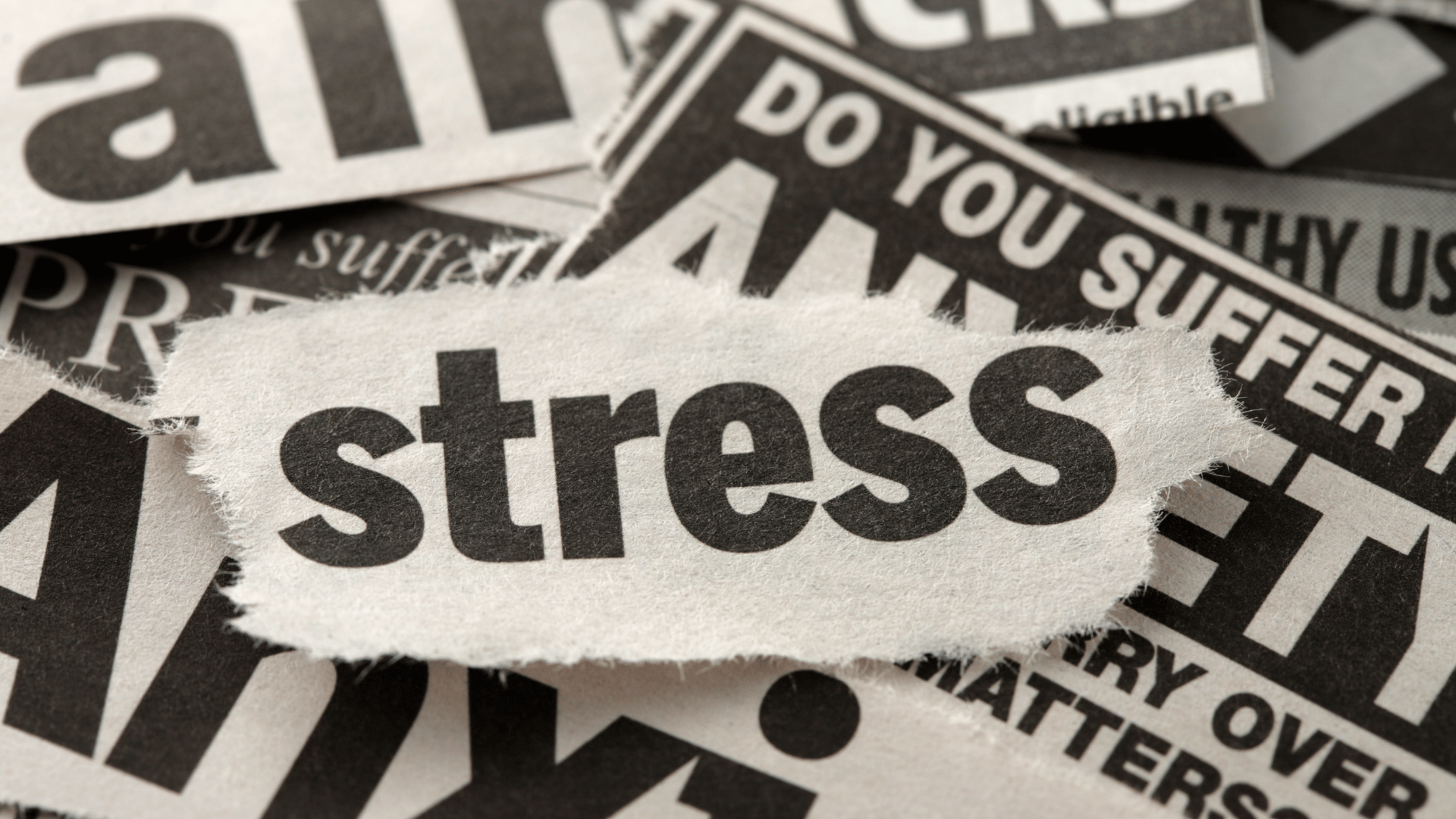You could be having a difficult day for a variety of reasons, wake up in a bad mood, or receive some unfavorable news. After making numerous attempts to push away the unfavorable thoughts, you eventually ask yourself, "Is it okay to be stressed?"
You're in a foul mood that you just can't seem to get out of, whether it's because of something that happened to you or you just woke up having no idea why. It can be easy to believe that stress is unacceptable in a world where everything is glamorized on social media, it basically affects your mental health. Many people consistently cope with stress. Everyday life factors can all lead to elevated stress levels.
These demands can originate from a person's job, relationships, finances, or other circumstances; in general, stress can be brought on by anything that presents a genuine or imagined difficulty or risk to one's wellbeing.
Stress may even be necessary for survival and serve as a motivator. The fight-or-flight response system in the body instructs an individual on when and how to react to danger. But when the body is overstimulated or exposed to too many stressors at once, it can be detrimental to one's physical and mental well-being.
You may experience stressful situations in life for a few days, weeks, or months at a time. This stress may play in the background of your life, even if you're not constantly aware of it. Developing coping mechanisms, such as talking to a friend or a responsible adult, can help shield you from the damaging effects of stress. Stress affects your physical health as well. Temporary increases in blood pressure can be brought on by stress. Your heart health can be enhanced by taking action to reduce stress.
Does stress cause high blood pressure?
Your body reacts to a stressful situation by increasing the blood levels of the hormones cortisol and adrenaline. The "fight or flight" response is brought on by these hormones. They increase blood pressure by narrowing blood vessels and quickening the heartbeat.
Stress can raise blood pressure but will only be affected temporarily by this. Your blood pressure returns to normal after the stressful event has passed. Chronic stress can have negative effects on your mood and sleep patterns. People who are experiencing stress may also turn to unhealthy coping mechanisms like binge eating, smoking, or drinking alcohol. Serious illness such as high blood pressure, clogged arteries, heart disease, and stroke may result from these.
To determine whether you need to make adjustments or find coping mechanisms, keep an eye out for the early indicators of stress, such as perspiration, appetite loss, headaches, difficulty concentrating, and feeling agitated or anxious.
Take charge by figuring out what adjustments you can make if you experience stress on a regular basis and to control high blood pressure. It can be beneficial to learn new time management techniques, find ways to unwind, interact with others, and engage in regular exercise.
Ways to manage stress
A great deal of what determines how well you handle stress is within you. Stress management is the key, the following actions can help you cope:
1. Get more physical activity
Exercise regularly and have a healthy diet. Moving your body frequently can help lower stress levels and elevate your mood if you're stressed. Engaging in aerobic exercise twice a week was found to significantly reduce both overall and uncertainty-related perceived stress in a 6-week study involving 185 university students. Furthermore, the exercise regimen greatly reduced the self-reported depression.
It has been demonstrated that regular exercise reduces symptoms. If you're not active now, start with easy exercises like riding a bike or walking. Selecting a hobby or pastime you enjoy can help improve your chances of committing to it over time.
2. Practice self-care
Making time for self-care activities could assist in lowering your stress levels. Individuals who practice self-care generally experience reduced stress levels and enhanced quality of life; conversely, neglecting self-care is linked to an increased risk of burnout and stress.
Living a healthy life means making time for yourself. For those who are more likely to experience high levels of stress, such as nurses, doctors, teachers, and caregivers, this is especially crucial. It's not necessary for self-care to be intricate or difficult. It just means taking care of your happiness and your general mental and physical health.
3. Spend time with friends and family members
You may find that having social support from friends and family makes it easier for you to handle stressful situations. A strong social support network is critical to your general mental well-being. Social support groups can be helpful if you don't have family or friends to turn to when you're feeling alone. Take into consideration volunteering for a cause that matters to you or joining a club or sports team.
4. Reduce your caffeine intake
Coffee, tea, chocolate, and energy drinks all contain caffeine, a chemical that stimulates your central nervous system. Overindulging could make anxiety worse. Excessive consumption could potentially disrupt your sleep. Consequently, this might worsen symptoms of anxiety and stress.
The amount of caffeine that each person can tolerate varies. If caffeine gives you jitters or anxiety, think about reducing your intake by switching to decaffeinated coffee, herbal tea, or water in place of coffee or energy drinks. However, it's crucial to take your tolerance into account because individuals who are sensitive to caffeine may feel more stressed and anxious even after consuming less than this amount.
5. Practice deep breathing
Your sympathetic nervous system is triggered by mental stress, which puts your body in fight-or-flight mode. Stress hormones cause physical symptoms like constricted blood vessels, rapid breathing, and an accelerated heartbeat during this reaction.
One of the relaxation techniques involve deep breathing exercises that may assist in triggering the parasympathetic nervous system, which governs the relaxation response. The goal of this is to slow down and deepen your breathing by focusing your awareness on it. Deep breathing through your nose causes your belly to rise and your lungs to fully expand. This makes you feel calmer by lowering your heart rate.
Take time for yourself
It is likely that you are not reaping the rewards of self-care when you are the last person on your list of priorities. Managing stress and prioritizing yourself on your to-do list may result in reduced stress, improved health, and an all-around higher standard of living. Your mood, cognitive abilities, and memory may all improve if you take some time to unwind and de-stress. You can help your body and mind heal themselves by learning to relax. You'll choose wiser choices.
You may have to wait a while if you're hoping for some free time in your schedule to engage in some self-care. You must schedule your self-care routine like you would anything else in order for it to be effective.
It is challenging for any of us to give without also making time for self-care. Make sure you are at the top of your list when you prioritize your to-do list. You don't have to shell out hundreds of dollars for the newest pedicure or spend endless hours on lengthy spa days. Even a few minutes here and there can have the same impact. Having taken care of yourself first will enable you to realize that you're doing great. Put yourself first.







